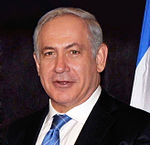“FYI to our friends in the left,” Prime Minister Benjamin Netanyahu announced on Facebook. “Israel’s success versus Venezuela’s failure.” It’s fascinating to see the joy with which the capitalist faithful pounce on Venezuela. No one thinks to fly over the shantytowns of Africa or of Brazil to photograph them because there’s no story there, that’s their “natural state. They have always been wretchedly poor, and no one tries to change it. But Venezuela’s a story. Of course, no one even considers helping out. You reap what you sow. Those insolent bums, who dared to challenge the world order, can go rot.
So what happened in Venezuela? Caudillos, regional strongmen, ruled for over a century after independence from Spain. In the “democratic” era, from the late 1950s, the country was gripped by economic crises that led to fierce confrontations. In 1993, President Carlos Andres Perez was ousted for embezzlement. Loss of faith in the corrupt political system, runaway inflation and a steep rise in poverty rates led to Hugo Chavez’s landslide election in 1998.
In addition to making strident speeches and targeting his opponents, Chavez also took action. He raised public spending dramatically after increasing the state’s share of oil revenue, most of which multinationals had previously pocketed. Millions of people received housing, education and health care. Within a decade, the poverty rate plunged to 30 percent from 50 percent and the Gini income inequality value fell from 0.49 to 0.39, among the lowest in the region. The figures come from the World Bank, which despises such reforms, not from one of Chavez’s circus-like TV broadcasts.
Since then, however, Venezuela has been afflicted by “the Dutch disease,” due to its total dependence on oil revenue — and not for the first time. When oil prices rose, so did Venezuela’s revenue, allowing Chavez to fund social reforms. Other sectors — agriculture, manufacturing — were neglected. When oil prices fell, so did Venezuela, to the point that it could not pay for food imports. That had nothing to do with the distribution of revenue, it was all about the lure of easy money and the failure to diversify risk. As if that were not enough, a severe drought reduced output from the country’s hydroelectric plants. President Nicolas Maduro is using violent repression to maintain power.
What Netanyahu and the crony capitalists are selling isn’t “the opposite of Venezuela.” Great social inequality is not more “natural” or “correct” than the fair distribution of income and national resources for the public good. Pointing to Venezuela as proof of the failure of social democracy is cheap demagoguery. Venezuela is not a social democracy, because it is not democratic. If you want to criticize a welfare state, let’s talk about Sweden.
But we can learn from Venezuela, FYI to our friends on the right. Don’t put all your eggs in one basket, such as natural gas. Now it seems the panacea for all the state’s ills, but that could change. Our agriculture must remain strong, to guarantee Thus, we must maintain strong agriculture to ensure food independence, and nurture science and higher education, the foundations of Israel’s success in high-tech and biotech. And despite the enormous gas reserves, we should encourage clean alternative energy, so as not to be dependent on a single source and so that we are not left behind when the world shifts to “green” energy.
The most important lesson from Venezuela, however, is to preserve a strong judicial system and a free media, in order to protect democracy and to prevent ills such as Maduro. Did you get that, Mr. Prime Minister?
Published in "Ha'aretz".

